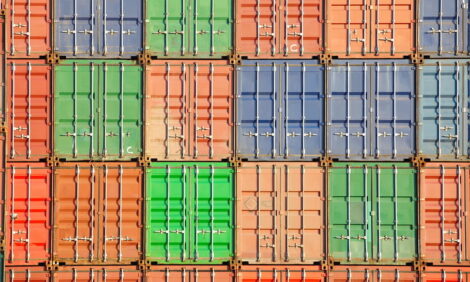



Dairy Farmers of America purchases first verified carbon credits
Farmer reduced enteric methane using feed supplementAthian announced last week the first sale of verified carbon credits in the livestock carbon insetting marketplace to Dairy Farmers of America (DFA), the largest US milk marketing cooperative. Texas dairy farmer Jasper DeVos utilized Athian’s first accepted protocol to generate carbon credits by reducing enteric methane and improving feed utilisation through use of a feed management product and quantification tool from Elanco Animal Health, resulting in nearly 1,150 metric tons of carbon dioxide equivalent (CO2e) reduction.
If the entire US dairy industry leveraged this same intervention, it could avoid 4.7 million metric tons of CO2e emissions annually from enteric, feed and manure emissions, accelerating the impact animal agriculture has in being part of the climate solution, according to the DFA press release.
DFA is proud to lead the way as the first US dairy cooperative to establish a science-based target with the goal to reduce greenhouse gas emissions across the supply chain by 30% by 2030. As part of an industry-wide collaboration on environmental sustainability through the Innovation Center for US Dairy, DFA is a key contributor to the dairy industry’s commitment to become greenhouse gas neutral or better by 2050.
"Dairy farmers raise their families and their herds on the same land. They have always been the true stewards of the land, the air and water and, as a result, have been consistently reducing their carbon footprint, year in and year out, decade after decade. However, the necessary systems have not been in place to quantify their tremendous environmental progress in a manner that would compensate for the ongoing investments they have made over generations. The marketplace can now finally allow farmers to realise financial benefits from their initiatives,” said Dennis Rodenbaugh, president and CEO of DFA, a cooperative owned by nearly 11,000 family dairy farmers across the country. “We’re gratified to see this science-based, third-party verified and validated system coming to life with the Athian platform and that dairy farmers are among the first to prove it works. The dairy industry has been positioned to rapidly advance progress. By working within the value chain on an insetting approach with the companies we work with every day, and now farmers can directly benefit.”
The future opportunity
This new carbon market opportunity comes at a critical time. Farm sector income, including dairy, is forecasted to have decreased by more than 20% in 2023. This new marketplace creates a scalable opportunity for farmers to earn money for their sustainability efforts while accelerating tangible impact on emissions reduction when it’s needed. Dairy farmers of all sizes now have the opportunity to reduce their greenhouse gas emissions, quantify and validate their reductions and sell the resulting credits in Athian’s livestock carbon insetting marketplace.
“Finally, farmers are getting access to the tools we need to accelerate the adoption of conservation practices and supplement income on the farm, which will allow us to reinvest in our farm’s stewardship efforts and contribute to the operation’s financial health for the next generation,” said Jasper DeVos, Texas dairy farmer and DFA farmer-owner. “The Athian platform is a critical step in ensuring dairy farmers of all sizes can be recognized and rewarded for the investment we are making towards a healthier environment.”
The insetting model developed by Athian benefits farmers, the environment and meets the growing consumer demand for sustainable choices. A recent report from the global Food and Agriculture Organization recognized both the need for more animal protein production to address global hunger and nutrient deficiencies, while also reducing emissions. In livestock, nine measures are set out that aim to reduce methane emissions in 2030 by 25%, and for productivity for livestock to grow by 1.7% per year globally by 2050.
“It’s exciting to see the full value chain come together to accelerate climate progress,” said Paul Myer, CEO of Athian. “Athian’s carbon credit marketplace is different than the traditional offsetting carbon marketplaces because it keeps the value inside of the animal protein value chain and allows each participant to gain unique value from the transaction. The farmer is able to create a new revenue stream, the food companies who have had challenges meeting their Scope 3 emissions reductions are able to make significant progress and ultimately, we’re able to mark progress against aggressive global goals.”
Elanco and other experts have conducted extensive studies to find opportunities for reduction of both methane and feed resources. Rumensin is approved by the Food and Drug Administration (FDA) to increase milk production efficiency (production of marketable solids-corrected milk per unit of feed intake) in dairy cows. When implementing Rumensin to increase milk production efficiency, carbon emissions are reduced by approximately .5 metric tons per year per dairy cow depending on each individual farm’s animals and management, according to Elanco. By following the Rumensin protocol, dairy farmers will be eligible to verify they have both reduced enteric methane emissions and reduction in feed utilization in their operations and then sell those greenhouse gas reductions as credits on Athian’s open carbon marketplace. The Rumensin protocol has been through a third-party validation process and was reviewed by the Athian Scientific Advisory Board, a group of leading environmental researchers who specialise in greenhouse gas emissions reductions. As new innovations are brought to market, the CO2e avoidance could double in the next year.
“Making sure environmental sustainability is grounded in farmer profitability has been a key priority for Elanco,” said Katie Cook, vice president of Farm Animal Health at Elanco, a seed funder of Athian. “Long-term, there is potential for more than $200 million of value for the US dairy industry if the entire industry leveraged this intervention. And the environmental and reputational value could be the equivalent of taking more than 1.5 million cars off of the road annually. This progress creates a pathway for climate-neutral farming to happen this decade.”
Enteric methane reduction carbon credits are now available for purchase through Athian’s insetting carbon marketplace.



